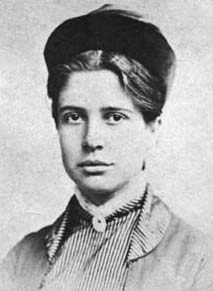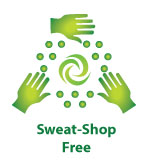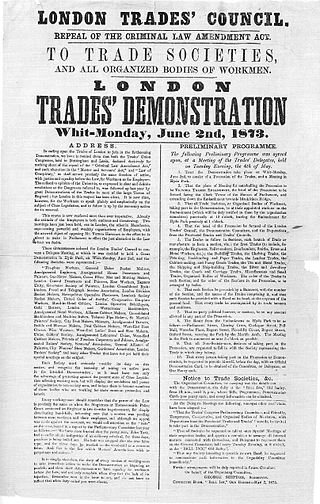Related Research Articles

A sweatshop or sweat factory is a crowded workplace with very poor or illegal working conditions, including little to no breaks, inadequate work space, insufficient lighting and ventilation, or uncomfortably or dangerously high or low temperatures. The work may be difficult, tiresome, dangerous, climatically challenging, or underpaid. Employees in sweatshops may work long hours with unfair wages, regardless of laws mandating overtime pay or a minimum wage; child labor laws may also be violated. Women make up 85 to 90% of sweatshop workers and may be forced by employers to take birth control and routine pregnancy tests to avoid supporting maternity leave or providing health benefits.

A living wage is defined as the minimum income necessary for a worker to meet their basic needs. This is not the same as a subsistence wage, which refers to a biological minimum, or a solidarity wage, which refers to a minimum wage tracking labor productivity. Needs are defined to include food, housing, and other essential needs such as clothing. The goal of a living wage is to allow a worker to afford a basic but decent standard of living through employment without government subsidies. Due to the flexible nature of the term "needs", there is not one universally accepted measure of what a living wage is and as such it varies by location and household type. A related concept is that of a family wage – one sufficient to not only support oneself, but also to raise a family.
No Sweat is a broad-based not-for-profit organisation with HQ in London's Kings Cross, England, which fights for the well-being and protection of sweatshop labourers, not only in developing countries but also in Britain.

War on Want is an anti-poverty charity based in London. War on Want works to challenge the root causes of poverty, inequality and injustice through partnership with social movements in the global South and campaigns in the UK. War on Want's slogan is "poverty is political" and its stated focus is on the root causes of poverty rather than its effects.

The National Minimum Wage Act 1998 creates a minimum wage across the United Kingdom. From 1 April 2024, the minimum wage is £11.44 per hour for people aged 21 and over, £8.60 for 18- to 20-year-olds, and £6.40 for 16- to 17-year-olds and apprentices aged under 19 or in the first year of their apprenticeship.

Florence Moltrop Kelley was an American social and political reformer who coined the term wage abolitionism. Her work against sweatshops and for the minimum wage, eight-hour workdays, and children's rights is widely regarded today.

Ex parte H.V. McKay, commonly referred to as the Harvester case, is a landmark Australian labour law decision of the Commonwealth Court of Conciliation and Arbitration. The case arose under the Excise Tariff Act 1906 which imposed an excise duty on goods manufactured in Australia, £6 in the case of a stripper harvester, however if a manufacturer paid "fair and reasonable" wages to its employees, it was excused from paying the excise duty. The Court therefore had to consider what was a "fair and reasonable" wage for the purpose of the act.
Minimum wage law is the body of law which prohibits employers from hiring employees or workers for less than a given hourly, daily or monthly minimum wage. More than 90% of all countries have some kind of minimum wage legislation.
The history of minimum wage is about the attempts and measures governments have made to introduce, ascertain, uphold and enforce a minimum wage.
Anti-sweatshop movement refers to campaigns to improve the conditions of workers in sweatshops, i.e. manufacturing places characterized by low wages, poor working conditions and often child labor. It started in the 19th century in industrialized countries such as the United States, Australia, New Zealand and the United Kingdom to improve the conditions of workers in those countries. These campaigns are meant to improve the working conditions through advocacy for higher wages, safer conditions, unionization and other protections. While they are meant to undermine the reputation of companies using sweatshop labor, they are not statistically significant as intended.

Sweatshop-free or sweat free is a term first used by American Apparel, a famous American clothing brand, which means coercion-free, fair-compensation for the garment workers who manufacture their products. The aim of sweatshop-free wish to ensure that all employees are treated fairly and products are made in good working conditions. Sweatshop-free standards include the right to collective bargaining, non-poverty wages, safe workplaces, back wages, and non-harassment. It has been heavily featured in American Apparel’s advertisements and become a common term in the garment industry.

Mary Reid Anderson was a Scottish suffragist and was a leading trades unionist. She was the general secretary of the Women's Trade Union League and was involved in the formation of the National Federation of Women Workers and National Anti-Sweating League.
Nike, Inc. has been accused of using sweatshops and worker abuse to produce footwear and apparel in East Asia. After rising prices and the increasing cost of labor in Korean and Taiwanese factories, Nike began contracting in countries elsewhere in Asia, which includes parts of India, Pakistan, and Indonesia. It sub-contracted factories without reviewing the conditions, based on the lowest bid. Nike's usage of sweatshops originates to the 1970's. However, it wasn't until 1991, when a report by Jeff Ballinger was published detailing their insufficient payment of workers and the poor conditions in their Indonesian factories, that these sweatshops came under the media and human rights scrutiny that continues to today.

The Trades Union Congress (TUC) is a national trade union centre, a federation of trade unions that collectively represent most unionised workers in England and Wales. There are 48 affiliated unions with a total of about 5.5 million members. Paul Nowak is the TUC's current General Secretary, serving from January 2023.

The London Trades Council was an early labour organisation, uniting London's trade unionists. Its modern successor organisation is the Greater London Association of Trades (Union) Councils
James Joseph Mallon, was a British economist and political activist.
The labour movement is the collective organisation of working people to further their shared political and economic interests. It consists of the trade union or labour union movement, as well as political parties of labour. It can be considered an instance of class conflict.
Margaret Hardinge Irwin (1858–1940) was a Scottish suffragist and labour activist who held important posts in the trade union movement.
George Shann was a British politician.

The National Federation of Women Workers (NFWW) was a trade union in the United Kingdom of Great Britain and Ireland active in the first part of the 20th century. Instrumental in winning women workers the right to a minimum wage for the first time, the NFWW broke down barriers for women's membership in trade unions in general.
References
- ↑ Race Mathews (1993) Australia's First Fabians: Middle-class Radicals, Labour Activists and the Early Labour Movement Cambridge University Press ISBN 0-521-44133-1
- ↑ Lees, Kirsten (1995) Votes for Women: The Australian Story St. Leonards: Allen & Unwin, p. 145
- 1 2 3 4 5 Sheila Blackburn (1991) The Historical Journal34 (1) 43-64 "Ideology and Social Policy: The Origins of the Trade Boards Act"
- ↑ Daily Mirror 18 October 1906
- ↑ Black, Clementina (1907). Sweated Industry and the Minimum Wage. London: Duckworth & Co. Retrieved 24 September 2011.
- ↑ Daly Mirror 5 November 1919
- ↑ David E. Martin, "Shann, George", Dictionary of Labour Biography, vol.II, pp.339-340